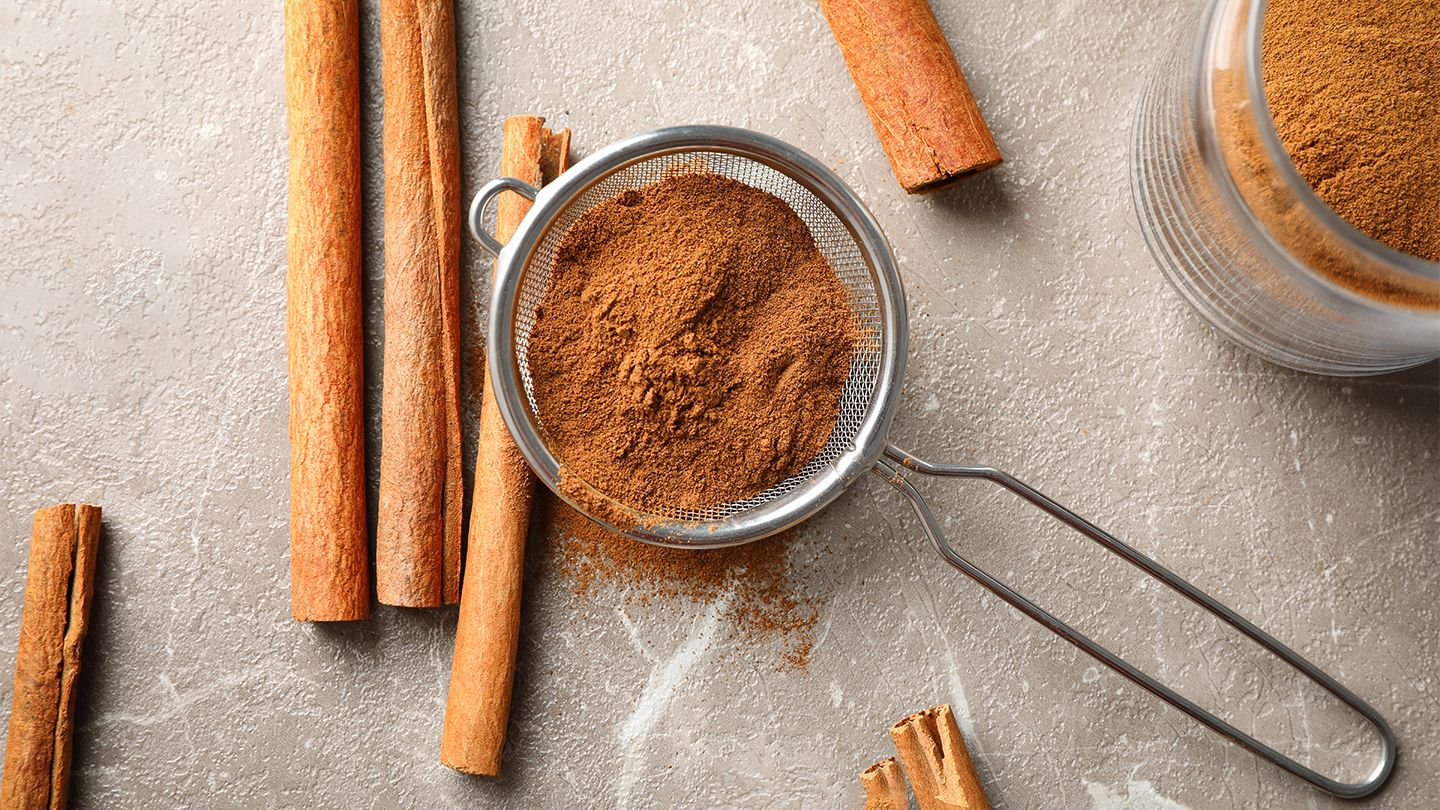With so much emphasis on new and innovative supplements and superfoods, it’s easy to overlook the nutritious powerhouses we already have in the pantry. Cinnamon is one of those spices that provides numerous health benefits. In this post, we’ll look at the six main benefits of including cinnamon into your diet, as well as the risks and contraindications to be aware of.
What is the spice cinnamon?
The popular spice cinnamon is a native of Sri Lanka and is made from the inner bark of numerous species of trees of the Cinnamomum genus. In addition to its delicious flavor and perfume, cinnamon is known for a wide range of health advantages, such as:
- Anti-inflammatory
- Antioxidant
- Control of blood sugar
- Enhanced cardiac health
- Antimicrobial qualities
- Improvement of cognition
- Gastrointestinal assistance
The advantages of cinnamon for health
Let’s examine this potent spice’s health-promoting qualities in further detail.
1. Antioxidant and anti-inflammatory qualities
Cinnamon has potent anti-inflammatory and antioxidant properties that can enhance overall health. The anti-inflammatory properties of its active components, which include two strong procyanidins called cinnamonaldehyde and cinnamonamic acid, come from their ability to block molecules that cause an inflammatory response.
Furthermore, the potent compounds found in cinnamon, which are rich in antioxidants, fight reactive oxygen species and protect the body from oxidative stress. This can help reduce the risk of chronic illnesses like cancer and heart disease.
2. Control of blood sugar
Cinnamon is a useful food ingredient to help with the symptoms of diabetes or pre-diabetic illnesses because it has long been thought to play a function in blood sugar regulation. It is also frequently included in supplements to lower blood sugar. Cinnamon may increase insulin sensitivity, allowing cells to use glucose more efficiently, according to research on animals.
Furthermore, some of the physiologically active compounds in cinnamon may prevent specific enzymes that break down carbohydrates, so reducing blood sugar levels after meals. Unfortunately, because there is currently little study on humans, the effects of adding cinnamon to your diet may not always be glucose-lowering. This is because the effects vary depending on the type, amount, and form of cinnamon that is utilized.
In order to maintain stable blood sugar levels without experiencing any negative effects, it is crucial to speak with a medical professional before incorporating cinnamon or its extracts into your diabetes treatment regimen.
3. Better cardiac health
Regular use of cinnamon as part of a balanced diet may help to maintain cardiovascular health. Its various mechanisms have demonstrated potential in improving heart health by lowering blood pressure, elevating levels of triglycerides and HDL (good) cholesterol, and lowering levels of LDL (bad) cholesterol.
It is crucial to remember that adopting a heart-healthy diet is an evidence-based strategy that should be your top focus for maintaining heart health. While cinnamon may be a wonderful addition, it should only play a minor role in this strategy.
4. Antifungal, antibacterial, and antimicrobial qualities
Cinnamon’s strong antibacterial and antifungal properties have been demonstrated in studies to be helpful against a range of bacterial and fungal problems. Cinnamon extracts have been shown in numerous studies to inhibit the growth of some bacteria, such as Staphylococcus aureus and Escherichia coli. For this reason, cinnamon is an excellent choice for food preservation and shelf life extension. There is evidence that using cinnamon as an ingredient in the treatment of illnesses connected to Candida albicans may be beneficial due to its antifungal characteristics.
5. Improvement of cognition
Use of cinnamon has been associated with improvements in memory and cognitive function. When consumed as part of a diet that promotes brain health, the neuroprotective properties of various components of cinnamon, such as epicatechin and cinnamonaldehyde, may help to maintain cognitive function and prevent cognitive decline. Although further research is necessary to fully comprehend the effects of cinnamon on cognition, there may be benefits to include this spice in your diet as part of a lifestyle that supports brain health.
6. Health of the digestive system
Cinnamon has long been used to support digestive health. It may help with various elements of human digestion by influencing digestive enzymes, reducing inflammation in the gastrointestinal tract, and enhancing the makeup of the gut microbiota. Cinnamon has antimicrobial properties that may help treat a number of gastrointestinal disorders in addition to relieving indigestion and flatulence. Overindulging in cinnamon can irritate the digestive tract; this is particularly true when the amount of cinnamon in supplements, essential oils, and extracts is higher. It’s okay to add a small amount of cinnamon to your food, but before adding more to your diet, speak with a qualified dietitian or other healthcare professional.

Advice about using cinnamon at home
To ensure the perfect cinnamon flavoring, check out our recipe suggestions before pouring the entire pot into your preferred meal.
Risks and contraindications of cinnamon consumption
While the benefits of integrating cinnamon into your diet are numerous, there are some negatives to consider before sprinkling cinnamon on everything.
Risks
Keep in mind the following risk factors:
Allergy: While cinnamon is generally safe for most people to ingest in moderation, it should be noted that some people may experience allergic responses to it. Test your sensitivity with little quantities before covering your oatmeal.
Liver toxicity: In rare situations, consuming too much cinnamon powder or oil might cause liver poisoning.
Pregnancy and breastfeeding:
Cinnamon should be used with caution during pregnancy and breastfeeding since large dosages might cause uterine contractions and severe consequences in newborns. More research is needed in this area to reach accurate results.
Diabetes:
People on diabetic medications should exercise caution when adding larger doses of cinnamon to their diet in the form of a powder, essential oil, or supplement, as it may cause blood sugar levels to drop too low.
Contraindications
People with the following health conditions should contact with their healthcare provider before adding cinnamon in their food.
Liver illness.
Bleeding Disorders
Use of anticoagulant (blood-thinning) drugs
Cinnamon may potentially interact with specific drugs, such as:
Antibiotics
Antifungals
Blood sugar-lowering medications
Consult your doctor
It’s critical to consult with your doctor about any medications you’re taking and how adding cinnamon to your diet may influence their efficacy.
Cinnamon is a versatile spice with a number of medicinal effects on the body, including anti-inflammatory and antioxidant properties, blood sugar regulation, and heart health support. It also enhances the flavor and aroma of our favorite dishes. However, cinnamon should be taken sparingly and with caution, as there may be adverse effects and contraindications.




